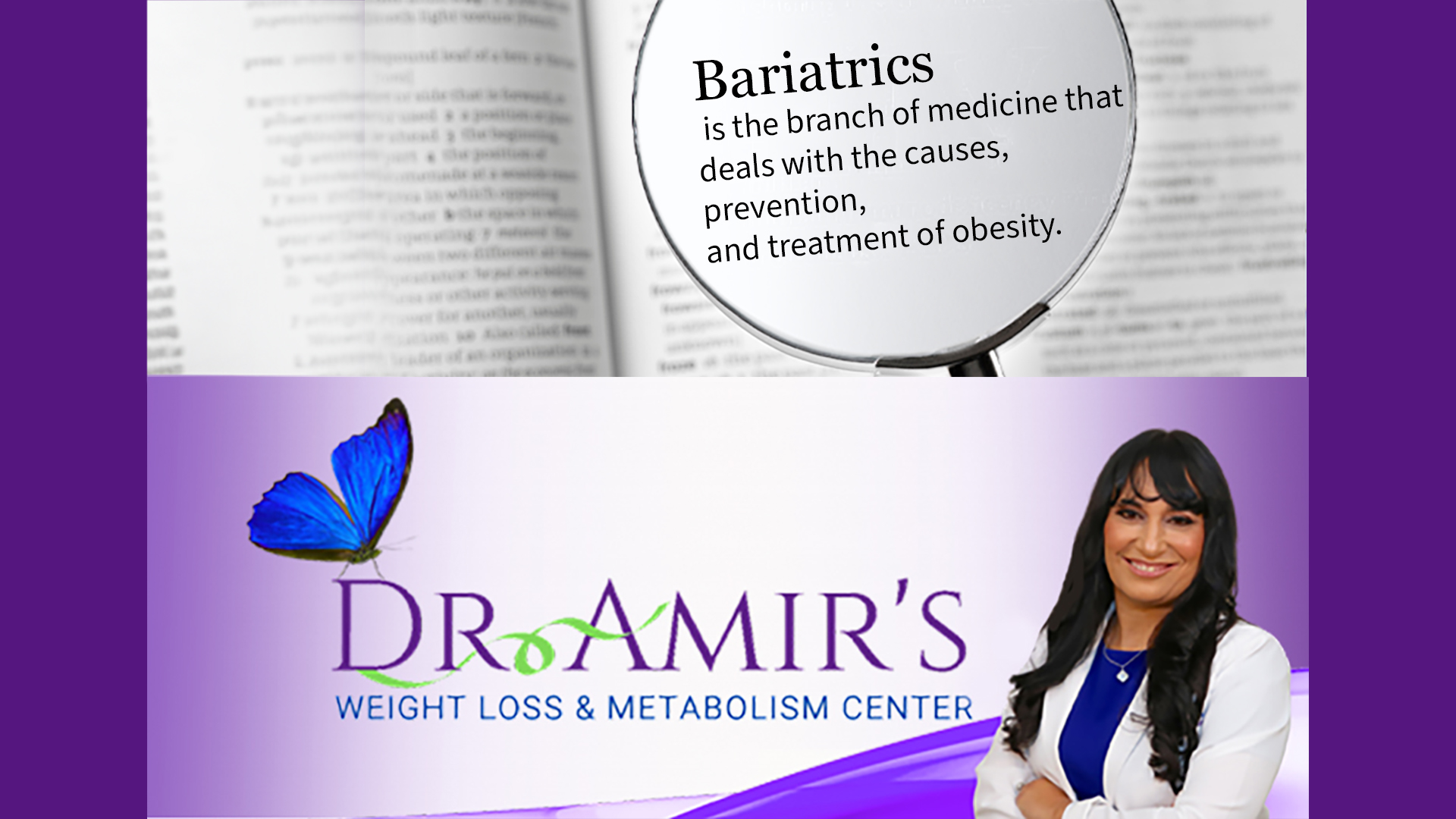What do Weight Loss Doctors Do?
A weight loss doctor, also called a bariatric doctor, specializes in the field of bariatrics, which pertains to the causes, prevention, and treatment of overweightness and obesity. The term “bariatric” originates from the Greek word “baros,” meaning weight. Weight loss doctors take a comprehensive and holistic approach to help individuals achieve weight loss and improve their overall health.
Bariatric doctors understand that weight management involves more than just the number on the scale. They address various factors contributing to obesity, including genetics, lifestyle choices, psychological aspects, and metabolic conditions. By considering these factors, they develop personalized treatment plans to address their patients’ specific needs.
While many people associate bariatrics with bariatric surgery, the field actually encompasses numerous non-surgical interventions as well. Bariatric doctors primarily focus on these non-surgical methods to treat and potentially cure obesity. They employ a combination of strategies, such as diet modifications, behavioral therapy, pharmacotherapy and physical activity, to support sustainable weight loss and long-term health improvements.
Methods Used by Weight Loss Doctors
Dieting usually plays the most significant role in a weight loss doctor’s approach. They help patients understand proper nutrition, portion control, and balanced meal planning to create a calorie deficit and promote healthy weight loss. Additionally, they may suggest specific dietary regimens tailored to individual needs, such as low-carb, low-fat, or high-protein diets.
Behavioral therapy is another crucial component of bariatric medicine. Bariatric doctors work with patients to address the emotional and psychological aspects of weight gain and develop healthy habits. They help individuals identify and modify behaviors that contribute to overeating or unhealthy food choices. This may involve counseling sessions, support groups, or techniques such as cognitive-behavioral therapy.
Pharmacotherapy, the use of medications to aid weight loss, is another tool employed by bariatric doctors. Bariatric doctors may prescribe medications that can help suppress appetite, increase metabolism or reduce fat absorption, depending on the patient’s specific needs and medical history. These medications are typically used in conjunction with lifestyle modifications to maximize their effectiveness.
“A weight loss doctor, also called a bariatric doctor, specializes in the field of bariatrics, which pertains to the causes, prevention, and treatment of overweightness and obesity.”
Physical activity might also be a part of bariatric treatment plans. Bariatric doctors may encourage patients to engage in higher levels of daily physical activity, considering their physical abilities and any underlying health conditions. It’s important to note that in many cases, this does not include strenuous exercise, but does include activities such as walking more, taking the stairs when possible and other lifestyle interventions involving increased physical movement to burn more calories.
How Meal Replacement Plays a Role
Weight loss doctors can use healthy pre-made meals that have less calories than a typical meal, a higher proportion of protein and adequate amounts of vitamins and minerals to help their patients lose weight. These meals provide a viable solution to the dietary needs of a weight loss patient by contributing less calories to their daily intake while making the patient feel fuller due to its higher protein content. Meal replacements also help weight loss doctors to ensure that their patients are getting adequate vitamins and minerals in their diet even though they are eating less food on a daily basis.
Safer, More Reliable and Sustainable Weight Loss
Bariatric doctors play a crucial role in helping their patients avoid the typical pitfalls often associated with fad diets. These pitfalls can not only compromise a person’s health but also lead to weight regain and ineffective weight loss. Bariatric doctors provide evidence-based guidance and support to ensure safe and sustainable weight loss while minimizing potential risks.
One common pitfall of fad diets is the potential for health damage during the weight loss process. Fad diets often promote extreme and unbalanced eating patterns, such as severe calorie restriction or the exclusion of entire food groups. While these approaches may result in rapid initial weight loss, they can deprive the body of essential nutrients and lead to various health complications. Bariatric doctors, on the other hand, prioritize the health and well-being of their patients, tailoring their weight loss plans to ensure adequate nutrition and overall wellness.
Another pitfall is the tendency to regain weight after a period of initial weight loss. Many fad diets focus on short-term results, often through drastic methods that are difficult to maintain long-term. This can lead to a cycle of weight loss followed by weight regain, often referred to as “yo-yo dieting.” Bariatric doctors aim to break this cycle by developing personalized weight loss plans that focus on sustainable lifestyle changes rather than quick fixes. They emphasize gradual weight loss, behavior modification, and ongoing support to help patients maintain their progress and avoid regaining the weight they’ve lost.
Fad diets may also result in the loss of water weight or muscle mass instead of fat weight. Some diets or extreme work out routines promote rapid weight loss by depleting water stores in the body. This weight can be quickly regained once a person’s typical eating and living patterns are resumed. This rebound effect can be discouraging. Additionally, extreme calorie restriction without proper guidance can lead to the loss of muscle mass rather than fat. Bariatric doctors emphasize the importance of preserving muscle mass during weight loss and achieving a healthy body composition. They employ strategies like balanced nutrition and monitoring body composition to ensure that weight loss primarily targets excess fat while preserving muscle mass.
By working with bariatric doctors, individuals can avoid the pitfalls of fad diets and pursue a healthier and more sustainable approach to weight loss. Bariatric doctors provide comprehensive care, focusing on long-term success and overall well-being. They guide patients through evidence-based interventions, addressing nutritional needs, behavior modification, and physical activity to ensure safe and effective weight loss while minimizing the risk of health damage, weight regain, and loss of essential muscle mass.
Dr. Amir’s Weight Loss and Metabolism Center
At Dr. Amir’s Weight Loss and Metabolism Center, we understand that losing weight can be challenging, and we’re here to help. We work with you to create personalized weight loss plans that are tailored to each individual’s needs. We use the latest in medical technology, including body composition analysis and metabolic testing, to ensure that our patients are losing fat and not muscle. We also offer a variety of weight loss techniques, including meal replacement, appetite suppressant and lipotropic medication and lifestyle interventions.
Our goal is to help our patients achieve long-term weight loss success and improve their overall health and well-being. If you’re ready to take the first step on your weight loss journey, we invite you to schedule your first consultation. Don’t wait, visit us now and let’s work together to achieve your weight loss goals.






